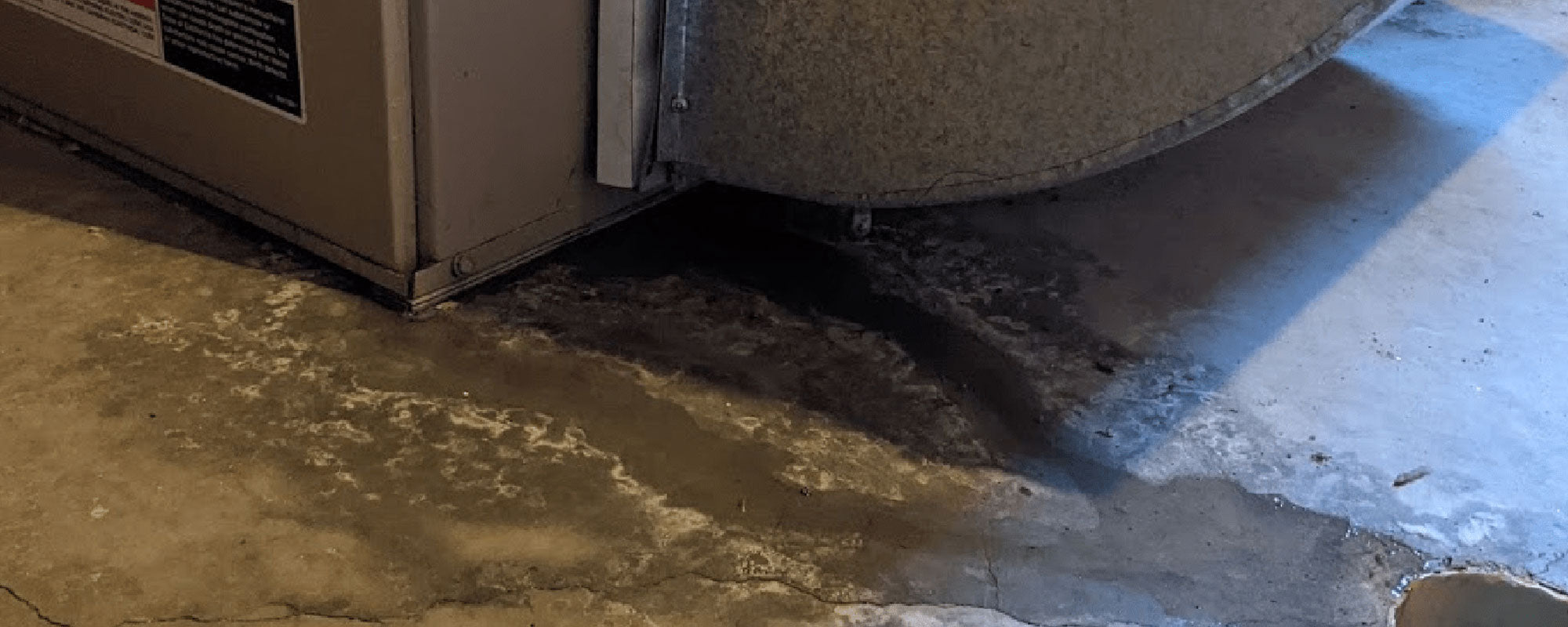A furnace leaking water is troubling, but it’s not necessarily a reason to panic. It might seem odd that a heating appliance would expel water, but furnace water leaks are common. Since some furnaces generate condensation and add moisture to the air with humidifiers, furnace leaks aren’t that surprising.
Leaks are inconvenient and usually signal minor problems, but they can become big problems if left untreated. Contacting an HVAC company to diagnose the issue and repair the leak is your best option, but homeowners can take steps to minimize the damage. In some cases, homeowners can resolve the problems themselves. Either way, it’s essential to get to the bottom of why your furnace is leaking.

Find the Ideal Furnace for Your Home: View Our Products
Reasons for a Furnace Leaking Water
Water leaking from your furnace can be caused by a condensation leak, faulty heat exchanger, or clogged air filter. However, the puddles near your furnace might have another source, such as your humidifier, air conditioner, or plumbing.
Is Water Leaking From Furnace Dangerous?
Is a furnace leaking water dangerous? Water leaks are more damaging than hazardous. Leaks cause rust formation, mold growth, and damage to electrical components, walls, and floors. Leaks should be addressed immediately to prevent more costly repairs down the road.
What to Do if Your Furnace Is Leaking Water
Call an HVAC technician if your furnace is leaking water. A furnace professional will diagnose the problem and offer a solution. In the meantime, here are actions you can take to minimize the damage and potentially solve the problem yourself:
- Turn off the furnace to stop the water and protect yourself from electrical shocks. The furnace can be turned off at the thermostat, the switch on the furnace, or the circuit breaker.
- Dry water that has pooled on the floor with towels, a mop, or a wet-dry vacuum.
- Dry water drips inside the furnace if you are comfortable doing so. Unscrew and remove the access panel. Use a towel to dry any drips you can see.
- Check the air filter, and replace it if it’s dirty or wet.
- A clogged condensate line can be flushed with equal parts white vinegar and hot water. Repeat the process several times if needed.
Regular furnace maintenance inspections can prevent leaks and other issues from occurring in the future.
Frequently Asked Questions
Why do high efficiency furnaces condensate?
High-efficiency furnaces condense when the secondary heat exchanger extracts heat from the exhaust gasses. As the exhaust cools, condensation forms. According to HomeTips, condensing furnaces produce five to six gallons of condensate a day.
Why is the furnace leaking water when ac is on?
Pooled water around your furnace might result from air conditioner issues. Condensation from the air conditioner might pool near the furnace from a loose or misaligned drain line, a clogged or cracked drain pan, a clogged air filter, or malfunctioning evaporator coils.
Why does my furnace exhaust gurgle?
Gurgling and dripping sounds from a high-efficiency furnace usually indicate issues with condensation drainage, such as a clogged drain line or broken condensate pump. Gurgling sounds from the vents or ducts might indicate more serious moisture issues.

Find the Ideal Furnace for Your Home: View Our Products







